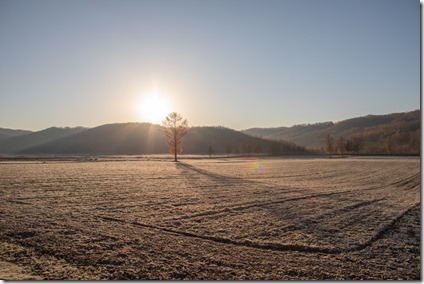 Psalm 120 is really resonating with me today. It’s the first of the Psalms of Ascent. Three times per year the Jewish people would leave their everyday lives and go on a pilgrimage “up the hill” to Jerusalem to engage in the worship of their God.
Psalm 120 is really resonating with me today. It’s the first of the Psalms of Ascent. Three times per year the Jewish people would leave their everyday lives and go on a pilgrimage “up the hill” to Jerusalem to engage in the worship of their God.
What does it take to walk away from everything for a couple weeks and trek up a hill to engage in worship? How do you hit pause on your duties? Can your everyday life survive a two-week hiatus?
My life had to be put on hold for two weeks recently. I was diagnosed with COVID and felt absolutely miserable. I’m still not at 100%. But this time away afforded me a good deal of thinking time. It helped me to think through priorities in my life. It made me think about slowing down internally. There is one word that emerged from my time away that echoes in my mind: wholeness.
The psalmist in 120 is fed up. He is distressed. “Deliver me, O LORD from lying lips, from a deceitful tongue”. It’s certainly his own lying lips which need deliverance, but the context looks to his social surroundings as well. “Too long have I had my dwelling among those who hate peace.” That’s an apt description of life below the hill. Life which doesn’t have time for the ascent up the hill. Life which must keep churning and burning in order to maintain all those life goals. It’s exhausting. These words from Chuck DeGroat floored me:
Rest is the most overused antidote to exhaustion today, and it hardly ever works. I know what the Bible says about rest, but I’m convinced we don’t understand what rest really means…We may define rest as stopping, sleeping, relaxing, enjoying – and all of these are very good! But we forget that we’re literally incapable of rest if we’re divided. Our inner divisions are what keep us from rest. (DeGroat, 129-130)
It’s impossible to find rest when you are not whole. It’s doubly impossible to find such rest in your everyday doings if your heart is divided. Even times of vacation will be fraught with inner turmoil. You can’t get away from your restlessness.
Yet we were made for rest. Rest is found up the hill. Yes, we live most of our days out in the flatlands. But we aren’t made for there. We’re made for being up the hill. We are made for ascent. Yet if we aren’t given the grace of being disenchanted by Meshech and Kedar we’ll keep fighting for our place in the bottoms. It’s a grace to look at your surroundings and say, “Too long have I made my dwelling among those who hate peace.” I can’t live here anymore. That’s when you start to look up the hill. That’s when you can walk away and pursue the wholeness that’s only found up the hill.
I appreciate Eugene Peterson’s words here:
Psalm 120 is the song of such a person, sick with the lies and crippled with the hate, a person doubled up in pain over what is going on in the world. But it is not a mere outcry, it is pain that penetrates through despair and stimulates a new beginning—a journey to God that becomes a life of peace. (Peterson, 25)
This is why Psalm 120 is resonating so deeply with me. I’m so absolutely burned out with all the fighting. I feel with the psalmist, “I am for peace, but when I speak, they are for war!” This seems to me like where I’m at in my wider ministry. I feel as if I’ve lost my voice amidst all the screaming and yelling. I want peace. I find myself unable these days to agree with people on either side of our poles. And I feel homeless.
War sells. War turns the eye. War enflames the passions and garners the attention we so crave. War unites as it divides from others. War has no time for nuance. War cares about truth more than victory. War is a noisy and clanging cymbal.
War is empty striving. War is making your home below the hill–fighting for a place in the badlands. War isn’t found up the hill. Yes, there are stances that must be had. There is a conquering and an endurance and a truth that is fought for with vigor and deep courage. But it’s a fight for wholeness. It’s a fight to keep hope and to war against the pull of self-centeredness. Up the hill is where rest is finally found because it is here that the dwelling of God is with humanity. It is here that we become whole.
Ultimately none of us are fit to ascend the hill. We’re too beholden to the flatlands. We’ve got thorns and thistles to maintain and crowns to manufacture. There is blood to taste from our endless battle, as a dog enjoys the blood upon his tongue from conquering his tail. We can’t ascend because we won’t.
Thankfully there is One who descended in order to ascend in our place. He’s calling us up the hill. Will we worship and labor for wholeness? Or will we war and waste away below the hill?
Let us ascend. “For here we have no lasting city, but we seek the city that is to come.” –Hebrews 13:14
—
Photo source: here